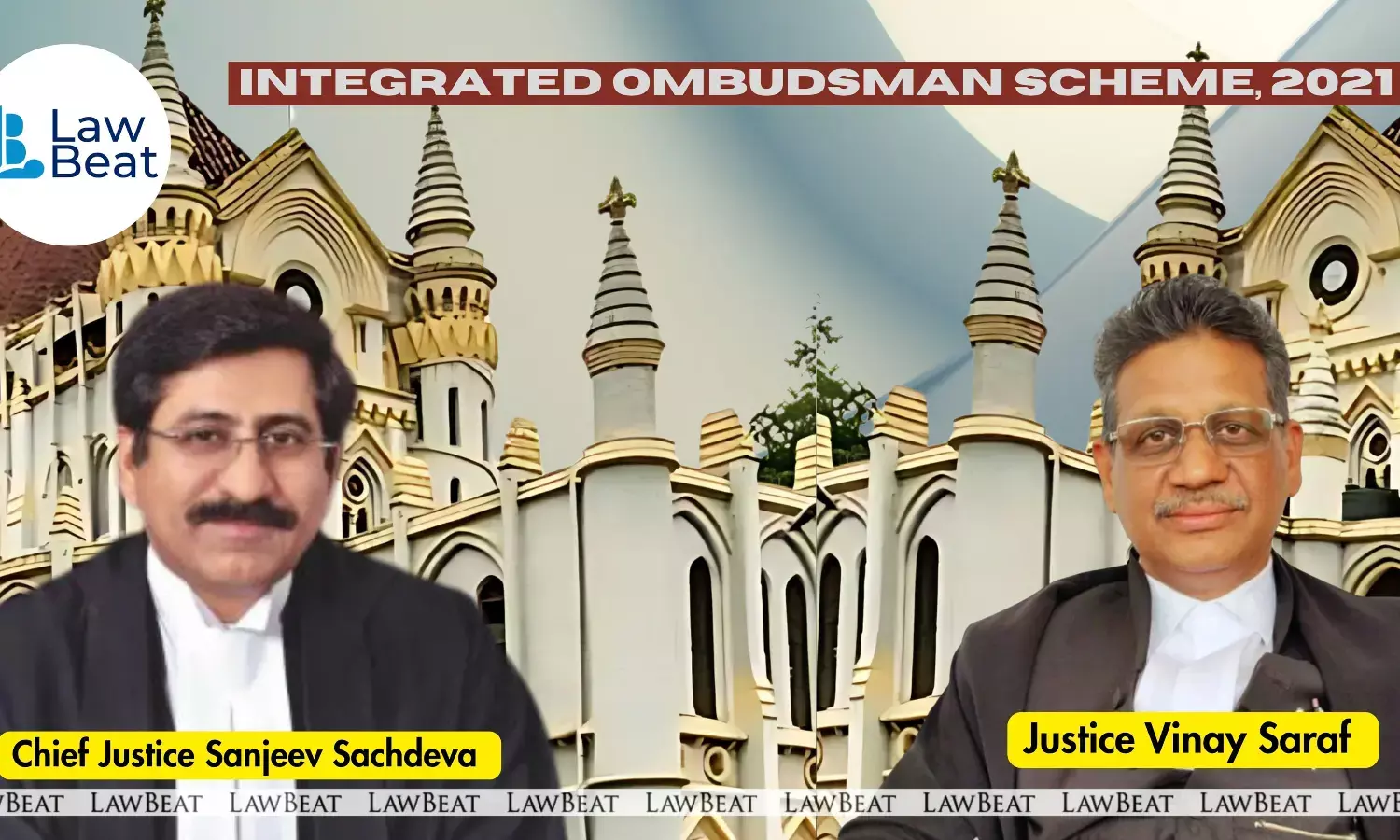Can Lawyers Represent Complainants Before The RBI Ombudsman? Madhya Pradesh HC To Decide

RBI’s rule stopping advocates from appearing before Ombudsman faces court challenge
The Madhya Pradesh High Court has issued notice to the Reserve Bank of India (RBI) on a petition challenging the validity of clause 10(2)(f) of the Integrated Ombudsman Scheme, 2021, which bars advocates from representing complainants before the RBI Ombudsman.
A Division Bench of Chief Justice Sanjeev Sachdeva and Justice Vinay Saraf, while hearing Ashutosh Sisodiya v. The Banking Ombudsman, RBI & Others, issued notice to the respondents on October 13, 2025, seeking their response within four weeks.
The petitioner, Ashutosh Sisodiya, a resident of Jabalpur, has filed the writ petition under Article 226 of the Constitution, assailing clause 10(2)(f) of the Integrated Ombudsman Scheme, 2021, framed by the RBI. The clause states that a complaint “shall not lie unless the complaint is lodged by the complainant personally or through an authorised representative other than an advocate unless the advocate is the aggrieved person.”
According to the petition, this provision effectively prevents lawyers from representing complainants before the RBI Banking Ombudsman, a quasi-judicial redressal forum set up to resolve consumer grievances against banks, NBFCs, and payment service providers. The petitioner contends that such a restriction undermines the right of consumers to obtain professional legal representation in proceedings involving financial irregularities and regulatory disputes.
It is argued that the clause violates Section 30 of the Advocates Act, 1961, which guarantees every enrolled advocate the right to practise “in all courts, before any tribunal or person legally authorised to take evidence, and before any other authority or person before whom such advocate is entitled to practise under any law for the time being in force.”
The plea asserts that the RBI’s restriction on advocate's appearance before the Ombudsman is ultra vires the parent legislation and contrary to established legal principles.
Sisodiya’s petition challenges the constitutional validity of the clause on the ground that it infringes the statutory and fundamental rights of advocates, while also depriving citizens of fair and effective legal assistance. The restriction, he submits, is arbitrary and contrary to the principles of natural justice and access to justice, which are integral to India’s constitutional framework.
The petition further contends that the restriction contradicts the objectives of the RBI Integrated Ombudsman Scheme, 2021, which was designed to simplify and strengthen consumer grievance redressal mechanisms across the financial sector. Instead of facilitating access to justice, the petitioner argues, the clause creates procedural hurdles that disadvantage consumers, particularly those without adequate legal knowledge.
Represented by Advocate Pranay Pathak, Sisodiya has also questioned the RBI’s handling of his personal grievance. He alleged that his complaint against the freezing of his State Bank of India (SBI) account was rejected solely because it had been filed through an advocate. The account had been frozen in connection with a cybercrime investigation initiated by Hyderabad Police, although no formal charges or FIR were ever filed against him.
According to the petition, Sisodiya’s funds, amounting to Rs. 2.86 lakh, were illegally frozen by SBI without prior notice or explanation.
Despite several representations to the bank and the Cyber Crime Division, Hyderabad, no response was received. Left without recourse, he approached the RBI Ombudsman seeking relief.
However, his complaint was dismissed as “non-maintainable” on the ground that it was filed by an advocate, in terms of clause 10(2)(f) read with clause 16(1)(a) of the Scheme. Even when Sisodiya personally filed a fresh complaint, it was again rejected on the same ground. The petitioner alleges that this reflects a mechanical application of the clause, denying him a fair hearing and violating his right to be represented by counsel of his choice.
The petition seeks to quash the Ombudsman’s order dated March 22, 2025, and to declare clause 10(2)(f) of the Integrated Ombudsman Scheme, 2021 unconstitutional. It further prays for directions to SBI and the concerned cybercrime authorities to release the withheld funds and to compensate the petitioner for financial loss and mental harassment.
Sisodiya’s counsel submitted that forums such as consumer commissions, RERA authorities, and environmental tribunals allow advocates to represent litigants, and therefore excluding them from Ombudsman proceedings serves no legitimate policy purpose. Denying legal representation, the petition contends, dilutes procedural fairness and the credibility of the RBI Ombudsman grievance redressal mechanism.
The case raises an important question for the financial sector; Can the RBI lawfully prohibit advocates from appearing before the Banking Ombudsman, given their statutory right to practise before all courts, tribunals, and authorities under the Advocates Act? The High Court's ruling is expected to have wide ramifications for representation rights before quasi-judicial authorities and could reshape how consumers approach the RBI Ombudsman Scheme in banking and fintech disputes.
Case Title: Ashutosh Sisodiya v. The Banking Ombudsman, RBI & Others
Bench: Chief Justice Sanjeev Sachdeva and Justice Vinay Saraf
Date: October 13, 2025
